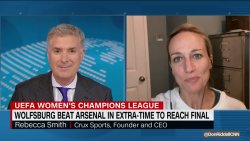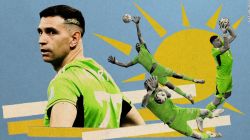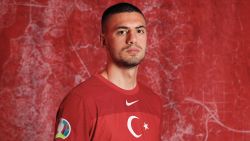The 1960s were in full swing. The Beatles and The Stones topped the charts, shoppers flocked to Carnaby Street and the mini skirt and Mini car were in maximum demand.
Amid that cultural sea-change, England’s football team won the World Cup on July 30, 1966. It’s the first and only time that’s happened and England defender Nobby Stiles’ celebratory dancing jig encapsulated a nation’s delight.
Fast forward to October 30 and a nation mourned as Stiles died at the age of 78 from prostate cancer and Alzheimer’s disease.
Stiles is one of a number of ex-footballers diagnosed with dementia and his death has intensified the debate surrounding the sport’s worrying relationship with degenerative brain disease.
Soon after Stiles’ death, it was disclosed that Bobby Charlton, a World Cup winner with England in 1966, has dementia. Jack, his brother and former 1966 teammate, died with dementia earlier this year.
Of the 11 players that started that 1966 final for England, at least five, including Ray Wilson and Martin Peters, went on to develop some form of dementia or Alzheimer’s disease, while former striker Helmut Haller, who scored for West Germany in the final, passed away in 2012 having suffered from Parkinson’s disease and dementia in later life.
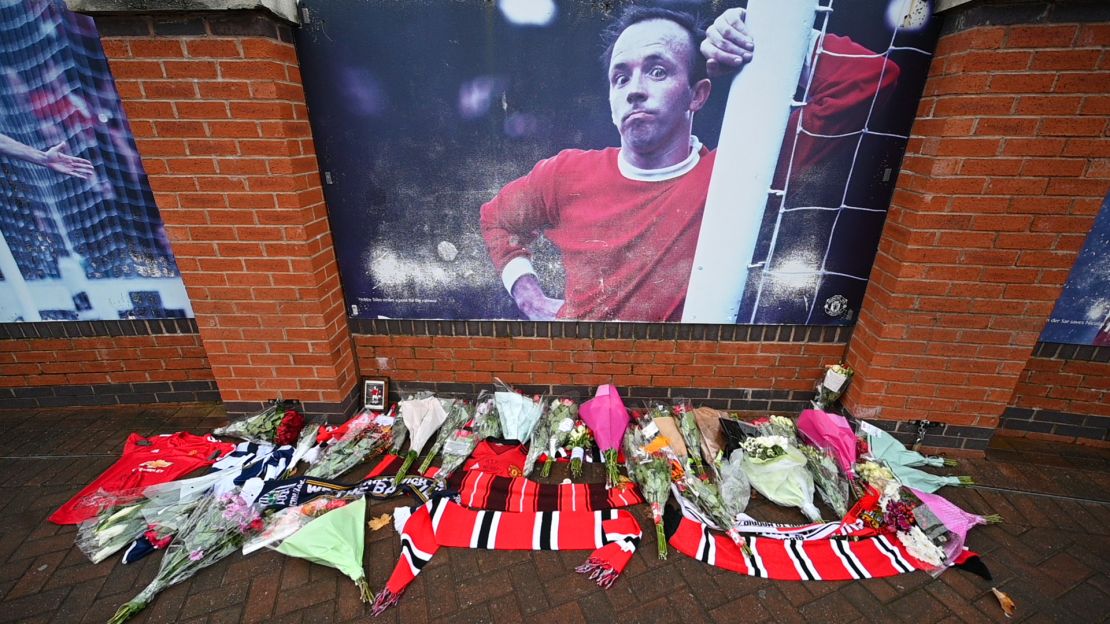
More than 50 years since England’s World Cup triumph, football is still coming to terms with the scale of the problem it faces.
“When you go into football at a young age, and certainly as a young professional, you realize that in the later stages of your life, you’re going to have ankle problems and knee problems and back problems, very much like I have,” Alan Shearer, the English Premier League’s record goal scorer who fronted a BBC investigation into the link between football and dementia, told CNN in 2017.
“Never did I ever think that football could also give you a brain disease.”
‘Mitigating potential risks’
A study conducted by the University of Glasgow last year revealed that deaths from neurodegenerative disease are around three-and-a-half times higher among former football players than expected.
Players are also twice as likely to develop Parkinson’s disease, approximately four times as likely to develop motor neuron disease and five times as likely to develop Alzheimer’s disease.
According to Dr. Willie Stewart, a consultant neuropathologist and part of the team that compiled last year’s study, the findings suggest football’s approach to heading and head injuries needs to change.
“I think if football doesn’t change, we could be looking down the line and saying the Liverpool football team that won the championship in 2020, putting a ring around four or five of them saying that, unfortunately, these guys passed away with neurodegenerative disease because that’s the kind of level we’re talking about,” Dr. Stewart tells CNN Sport.
“Unfortunately, because of the numbers we brought forward last year, having five players from a team in 1966 … with neurodegenerative disease is in line, unfortunately, with our statistics.”
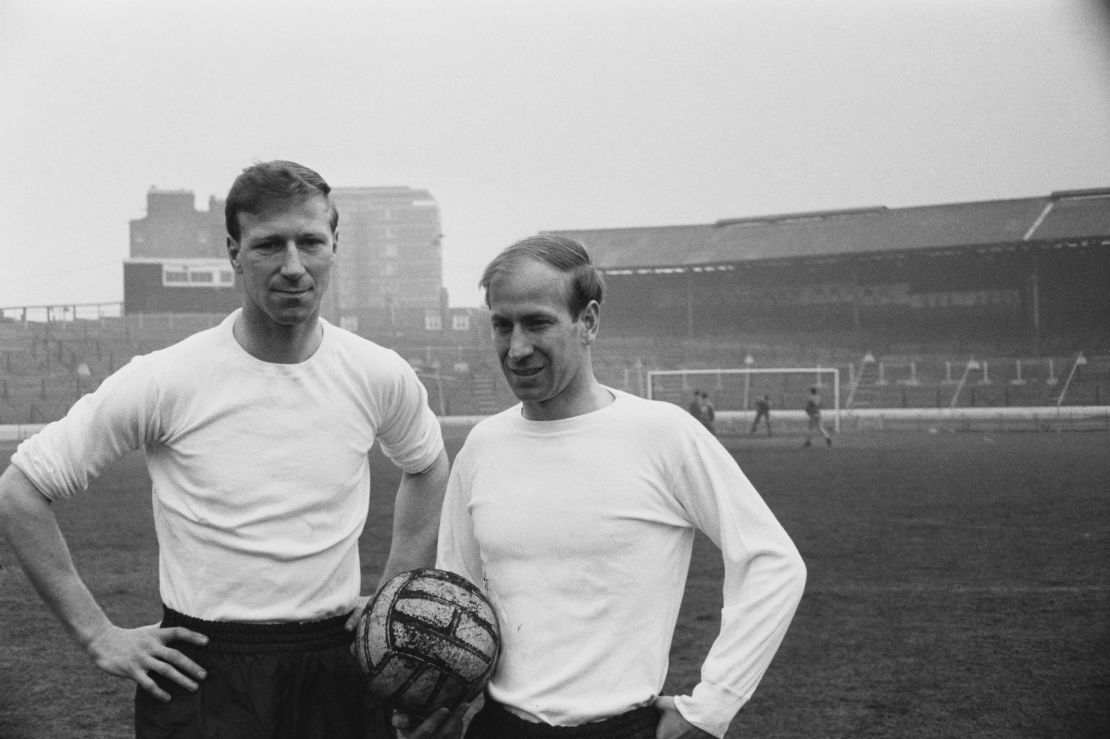
The Football Association (FA) and Professional Footballers’ Association (PFA), along with the Irish and Scottish FAs, ruled out heading in practice for players aged 11 and under to “mitigate any potential risks” that might be linked with heading the ball. This was guided by the results of last year’s study.
In 2016, U.S. Soccer banned any heading for under-11s, while European governing body UEFA issued heading guidelines for young players earlier this year but stopped short of any form of ban.
However, Dr. Stewart thinks work needs to be done on an international scale: “I don’t see a global game approach – I see a global game approach to not doing anything,” he says.
“FIFA have not been in touch (following last year’s study). FIFA have not taken forward this result, FIFA have not made any statement that they’re going to do something.
“This is a big sport, it’s the world’s most popular participation sport. Taking the research forward is going to improve lifelong health and reduce the risk of dementia.”
In a statement to CNN, a FIFA spokesperson said: “As far as brain injuries in football are concerned, FIFA takes its responsibility very seriously as protecting the health of players is – and will remain – a top priority in developing the game.
“FIFA has made tackling this issue a key objective of its medical subdivision and has established an Independent Football Concussion Advisory Group that will further discuss and evaluate research on the topic of concussion and brain injuries.
“This group will work hand-in-hand with FIFA’s medical subdivision, which in parallel will liaise with the Concussion Expert Group (CEG) to advise on adapting the Laws of the Game, to ensure the wellbeing of all players.”
It has also been proposed that trials of additional permanent concussion substitutes could begin in January 2021.
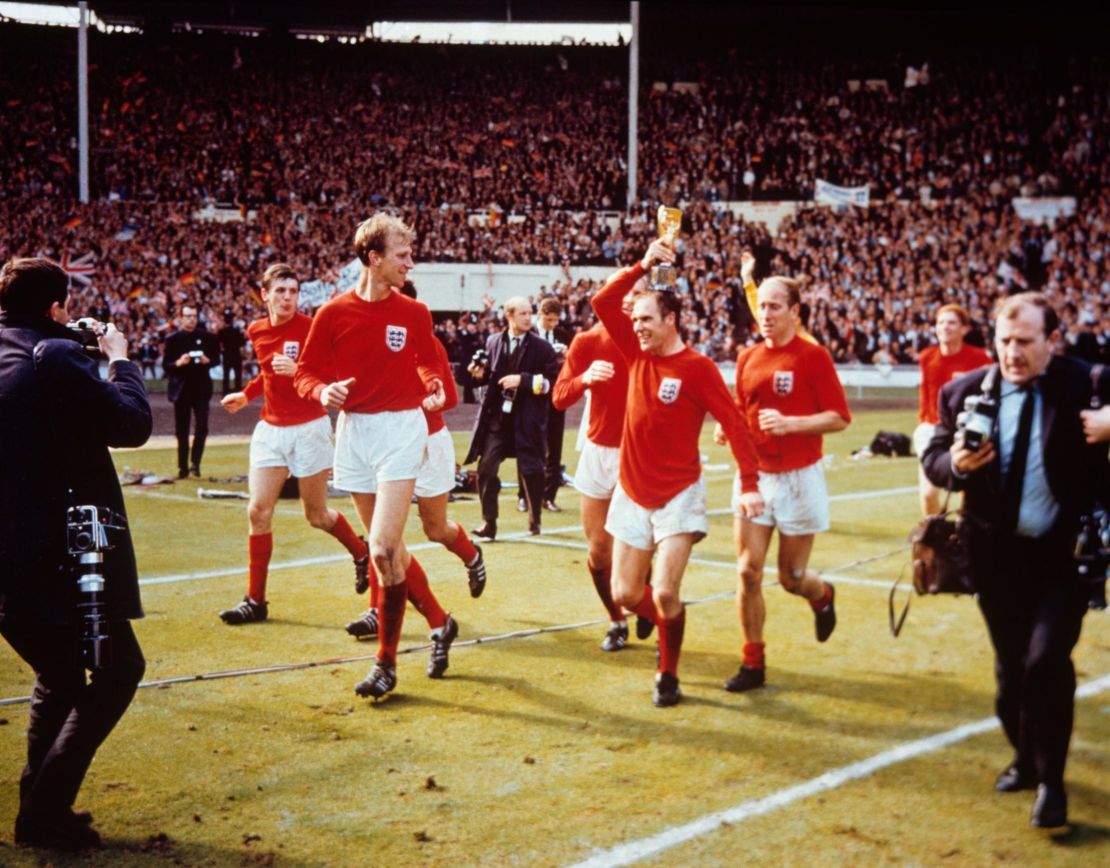
‘We shouldn’t relax’
Dr. Stewart also notes the case of Marius Zaliukas, a former defender for clubs in Scotland, England and his native Lithuania, who died 11 days before his 37th birthday having been diagnosed with motor neuron disease, according to his former football club Hearts.
“I think it just highlights to me that whilst a lot of people will look at the weekend and talk about Nobby Stiles and Bobby Charlton and think about dementia, we’re really talking not just about elderly, older men with dementia,” says Dr. Stewart.
“We’re talking about young men with problems as well. And I don’t think we should lose sight of that. And we shouldn’t relax and say this problem’s from a bygone era.”
Chronic traumatic encephalopathy (CTE) – a degenerative brain disease associated with repeated head traumas – has a well-established association with contact sports, most notably in the NFL.
When it comes to football, signs point towards heading as the aspect of the game causing CTE to develop in players’ brains.
“It’s not from concussions because concussions are a rare event in football,” says Dr. Stewart. “But head impacts are a very common event in football – heading is part of the game, heading in training is part of the game.
“You may watch a game at the weekend and there’s only five headers for one player, but he may do 80 or 100 a day during the week.”
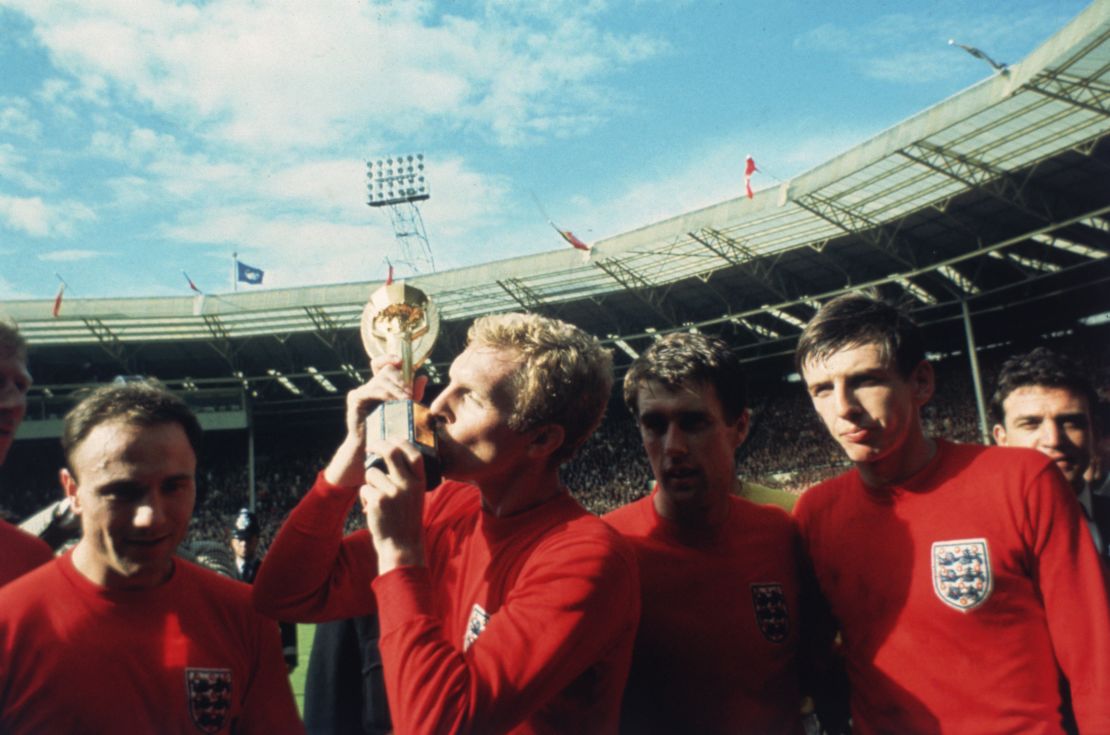
Support for former players
The PFA has set up a dementia helpline to provide support for ex-players and, along with The Sporting Memories Foundation, has produced a guide to living with dementia.
Sporting Memories is the world’s first charity dedicated to using sports-based reminiscence to tackle social isolation, low mood and dementia among older adults.
Many of the members are former professional or amateur footballers for whom remembering their playing days can help combat some of the effects of dementia, such as memory loss and cognitive impairment.
Sporting memorabilia – footballs, photos, sticker albums or team kits – can play an important role.
“Being able to share memories of playing football or playing other sports, they’re the memories which are really powerful and often they’re very positive memories as well – feelings of when you were fit and able and running around and all the great conversations in the changing rooms and on the pitch,” Chris Wilkins, co-founder of Sporting Memories, tells CNN Sport.
“We’ve got our own retro ball that we bring along to the groups as well; the smell and the feel of all these things, they all tap into those long-term memories.
“It’s amazing what’s triggered. People with quite advanced conditions can suddenly remember a specific game or the entire squad; how a goal was scored or what the weather was like.”
There are now over 120 Sporting Memories clubs in England, Wales and Scotland which organize activities such as quizzes, discussions or gentle exercise that help spark positive memories.
The foundation works with football clubs across the UK to support former players who have been diagnosed with dementia.
“It really is about the individual, because there are lots of forms of dementia and everybody’s diagnosis – and how they present with a diagnosis – is different,” says Wilkins.
“It’s about looking at the individual in front of you and playing to their strengths – what cognitive strengths they still have, what issues they have, and just trying to engage them and to make them feel comfortable and part of the group.”


